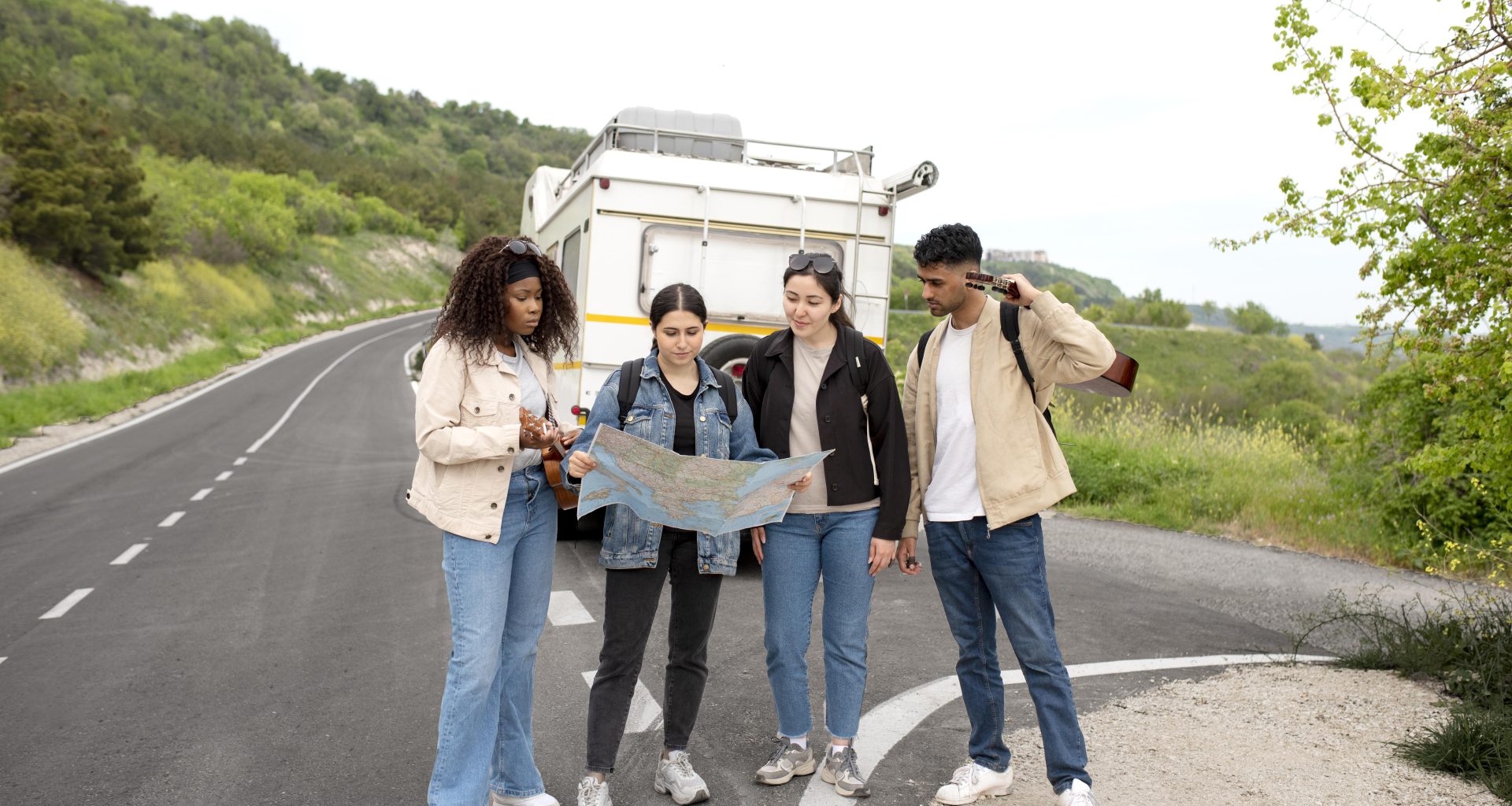Road trips are an exciting adventure, offering the freedom to explore new places and create lasting memories. Whether you’re planning a cross-country journey or a weekend getaway, ensuring safety should always be a top priority. By following these tips, you can enjoy your next road trip to the fullest while staying safe on the road.
Prepare Your Vehicle
Before embarking on any road trip, it’s crucial to ensure your vehicle is in optimal condition. A well-maintained car not only enhances safety but also minimizes the risk of breakdowns and unexpected repairs along the way.
Check Your Vehicle’s Vital Signs: Start by checking essential components such as tire pressure, tread depth, and overall condition. Properly inflated tires improve fuel efficiency and traction, crucial for safe driving on various road surfaces. Consider investing in a tire pressure gauge and inspecting tires before each trip segment, especially in hot weather or after extended use.
Inspect Fluid Levels and Brakes: Next, check fluid levels including oil, coolant, brake fluid, and windshield washer fluid. Low fluids can compromise vehicle performance and safety. Ensure brakes are in good condition with sufficient pad thickness and smooth operation. Brake pads should be replaced promptly if they show signs of wear or squealing noises during braking.
Evaluate Lights and Signals: Verify that all exterior lights are functioning correctly, including headlights, brake lights, turn signals, and hazard lights. Proper illumination ensures visibility in low-light conditions and alerts other drivers to your intentions. Replace any burnt-out bulbs promptly and carry spare bulbs for emergencies.
Plan Your Route and Stops
Effective route planning is essential for a smooth and enjoyable road trip experience. Mapping out your journey in advance allows you to anticipate potential challenges, such as traffic congestion or road closures, and identify rest stops, gas stations, and accommodations along the way.
Use GPS Navigation: Utilize GPS navigation or smartphone apps to plan your route and monitor real-time traffic updates. Choose routes that prioritize safety and efficiency, avoiding unfamiliar or isolated roads, especially at night. Consider downloading offline maps for areas with limited cellular service.
Schedule Regular Breaks: Driving long distances without breaks can lead to fatigue and decreased concentration, increasing the risk of accidents. Plan to take regular breaks every two hours or 100 miles to stretch your legs, rest, and refresh. Use rest areas, scenic viewpoints, or designated picnic areas to unwind and rejuvenate before continuing your journey.
Research Rest Areas and Services: Identify rest areas, gas stations, and amenities along your route to refuel, use restroom facilities, and replenish supplies. Research local regulations and amenities at each stop to ensure they meet your needs and provide a safe environment for travelers.
Pack Emergency Essentials
Unexpected situations can arise during any road trip, from minor inconveniences to more serious emergencies. Packing a comprehensive emergency kit ensures you’re prepared to handle various scenarios and prioritize safety.
Essential Items to Include: A well-stocked emergency kit should include a first aid kit with bandages, antiseptic wipes, pain relievers, and any necessary prescription medications. Carry a fully charged mobile phone and charger to maintain communication with emergency services and loved ones in case of an emergency.
Additional Supplies: Pack drinking water and non-perishable snacks to stay hydrated and nourished during extended delays or emergencies. Include a flashlight with extra batteries, a multipurpose tool or knife, duct tape, and a portable tire inflator or sealant for temporary repairs.
Also Read: Emerald Elegance: An enchanting assortment of dresses
Conclusion
Embarking on a road trip is more than just a journey; it’s an opportunity to embrace adventure while ensuring your safety and that of your fellow travelers. By following these four essential tips, you can significantly enhance your road trip experience and mitigate potential risks along the way.








